Newcastle disease is a viral disease that is seriously dangerous to birds. This acute disease is characterized by damage to the nervous system, respiratory tract and gastrointestinal tract. It leads to a decrease in livestock productivity and often ends with the death of birds.
Newcastle disease is also known as avian pneumoencephalitis, ranikhet disease, pseudo-plague, pseudoencephalitis, Brunswick, atypical and Asiatic cholera. In poultry farming, this virus is considered one of the most dangerous. It infects thousands of poultry every year which causes significant economic damage to both large farms and small farms. In addition to that, pseudo-plague poses a threat to human health even if it is not a fatal disease.
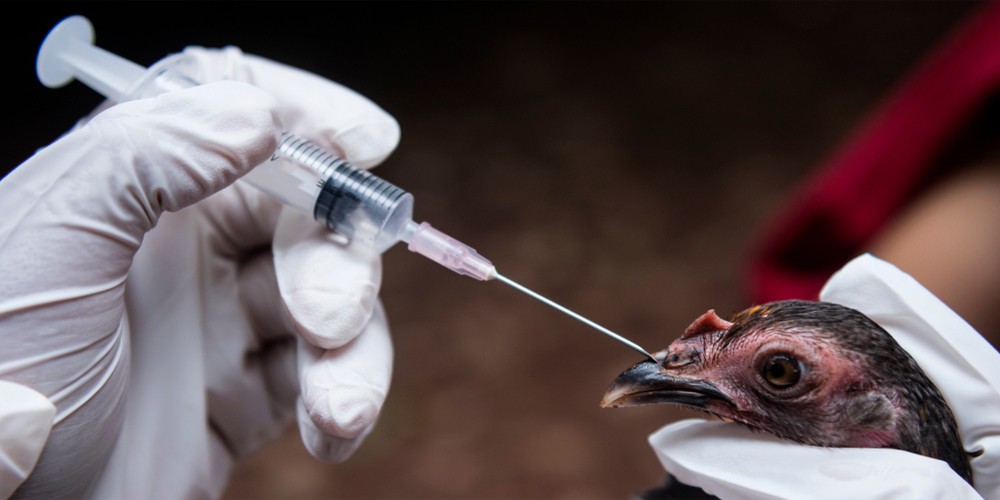
Causative agents of the disease
Newcastle disease is caused by a paramyxovirus, which contains RNA. The virus has a rod-shaped or rounded shape. It depends on the strain with each strain having a certain degree of pathogenicity and characteristic symptoms. Some of them are practically harmless, others pose mortal danger.
Depending on the severity of the course of the disease, several types of viruses are distinguished:
|
Type of the disease |
Changes in the body |
Symptoms |
|---|---|---|
|
Lentogenic (chronic). |
Duodenal and rectal ulcers, tracheitis, enteritis, inflammation, thinning of the intestinal wall. | Decrease in egg production, possible increase in goiter, the area around the cloaca smeared with droppings, obvious exhaustion. |
| Mesogenic (subacute). | Malfunctions of the nervous system, damage to the digestive and respiratory organs. | Decreased growth, disorientation, fever, asthma attacks, persistent cough. |
| Velogenic (acute. | Hemorrhages in the follicles of the ovary, intestines, and stomach. | Head constantly falling down, slimy diarrhea with blood, refusal to drink and eat, mucus from the beak, apathy. |
| Asymptomatic (atypical. | The formation of antibodies. | Legs do not obey, wings sag, neck twists, cramps, possible absence of symptoms. |
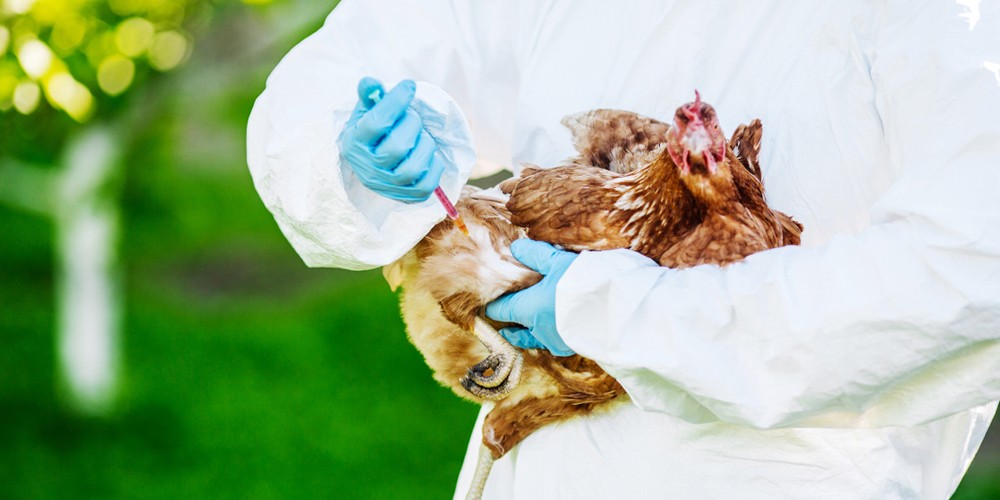
Strain characteristics
A common property of all strains is resistance to physical and chemical external influences. They are able to maintain their viability for a long time:
- When boiling the carcasses of an infected bird - up to 60 minutes.
- In the body of tick vectors - more than 6 months.
- In the dried organs of infected birds - up to 2 years.
- In the litter of sick birds - about 20 days.
- In frozen infected carcasses - 1-2 years.
- In buried infected bodies - up to 1 month.
- In the habitats of birds in the summer - up to 7 days, in winter - up to 5 months.
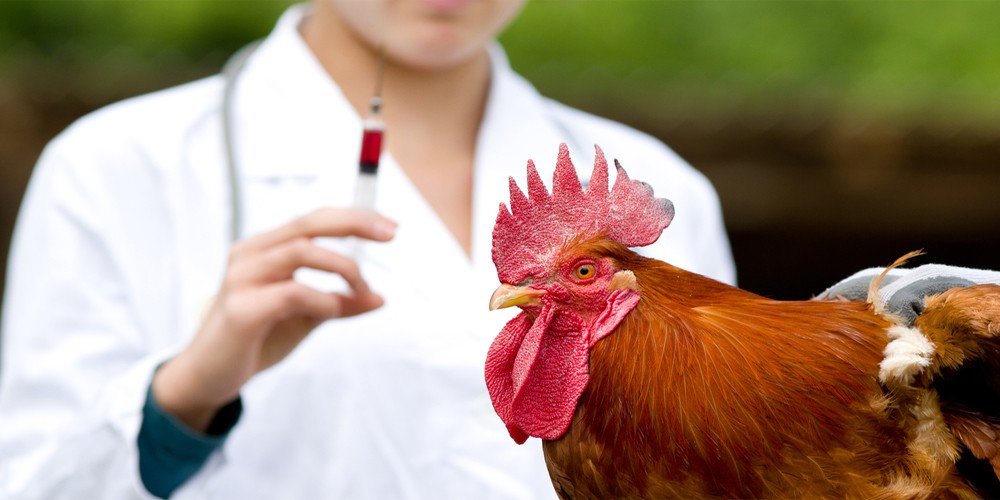
Diagnostication
Diagnostication of Newcastle disease should be carried out only by a complex diagnosticating process. The diagnosis is confirmed in the laboratory. The main methods for diagnosing the disease are:
- Statement of serological identification in complement fixation test, RGA, ELISA, EIA and other methods.
- Determination of the virus titer through the study of embryos.
- A bioassay test by infecting chicks at the age of 1 month.
- Conducting studies with the isolation of the virus containing RNA from the brain and bone marrow. Manipulations are carried out at the initial stage of infection (3-5 days of illness).
When diagnosing, veterinarians recommended to differentiate Newcastle disease from bursitis, laryngotracheitis, infectious bronchitis, flu, and poisoning.
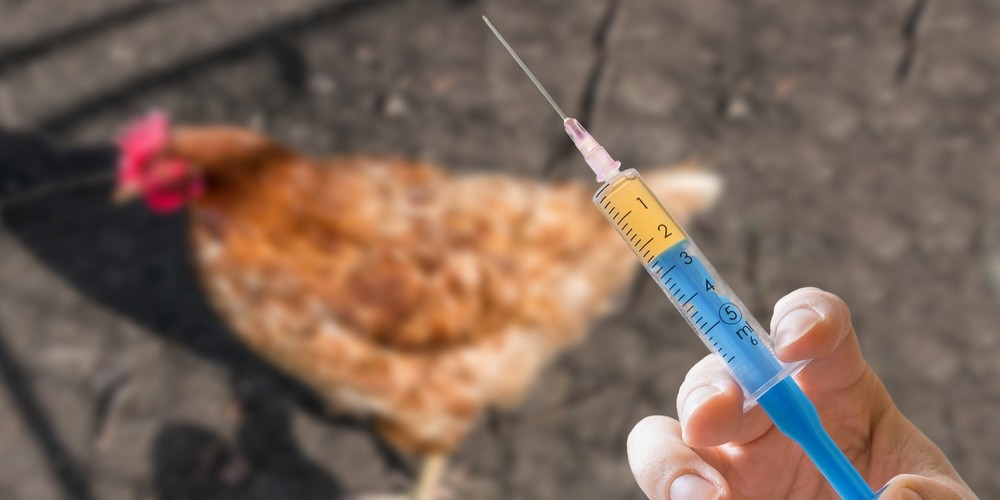
Which birds are at risk?
Newcastle disease can affect absolutely all birds. It is impossible to protect wild birds from this virus, but it can be done when it comes to agricultural and domestic birds. Most often, chickens, turkeys, partridges, guinea fowl, and other birds are infected. Newcastle disease also threatens ostriches, hawks, sparrows, parrots, and pigeons.
Ducks and geese are resistant to strains, but these birds are carriers of the disease. Layers can both act as victims of the virus and be carriers of it.
Newcastle disease is more likely to affect young animals, rather than adults. Poultry with weak immunity easily picks up the disease. It should be treated promptly to avoid spreading to the entire population.
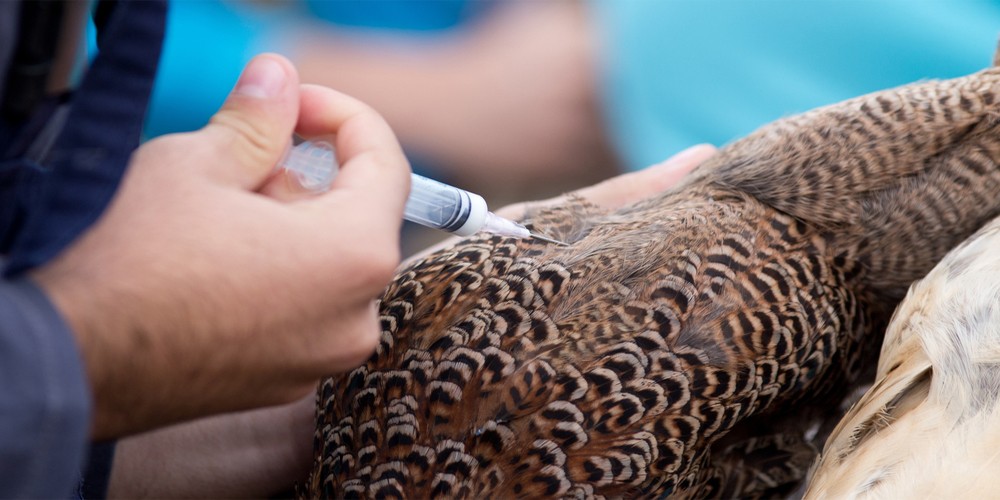
Virus spread
The sources of the pathogen are ill or infected birds. Strains are released from their bodies into the external environment with eggs, secretions and by breathing. The virus can be transmitted through:
- The corpse of a diseased turkey or chicken.
- Litter, water, feed, feathers, fluff and other raw materials from the habitat of sick birds.
- Clothes or shoes of the workers.
- Food obtained from infected birds (meat, eggs).
Equipment from an infected place. A day after entering the body, the strain is able to spread further through new carriers. The radius of the infection can reach ten kilometers.
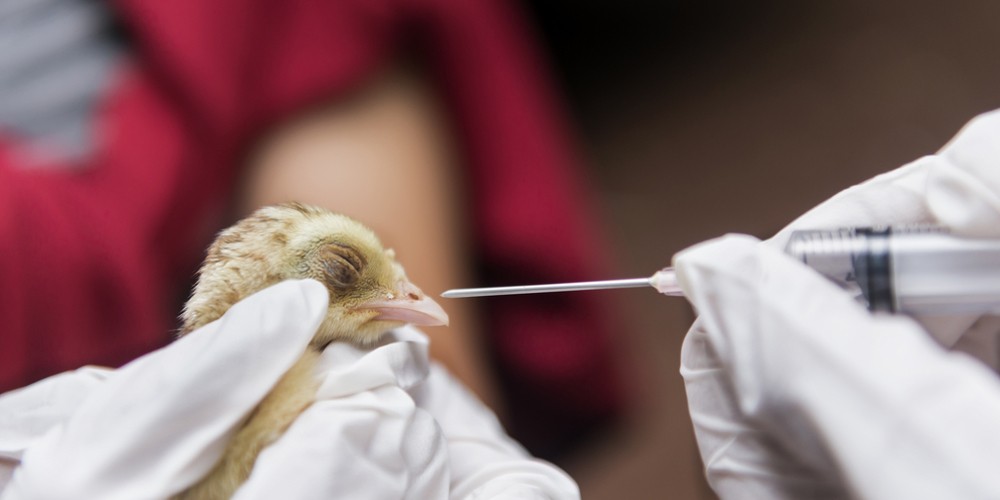
Vaccination
Vaccination of poultry is mandatory for birds from the age of 4 months. This procedure is recommended to be carried out twice. Vaccinations can also be given to one-month chicks. Broilers are vaccinated once from the tenth day of life. Adult birds are vaccinated only when absolutely necessary as this reduces the productivity of laying hens.
Vaccination against Newcastle disease is recommended in the fall and spring. The effect of the vaccine begins 3-4 days after its use. The period of protection provided varies from 2 to 12 months and depends on the age of the birds, the type of vaccine, the conditions of living and food quality. Before vaccination, it is necessary to enrich the diet of birds with vitamins which will help strengthen immunity and improve the general condition of their health.
One of the most effective products is the dry vaccine Vladivak-La Sota. It is made using extraembryonic SPF fluid of infected chicken embryos. Skim milk is added to it as a stabilizer.
This vaccine is a homogenous dry mass of a light brown or yellow color. It is used to prepare a suspension and is highly soluble in water or physiological saline. This product is used intramuscularly.
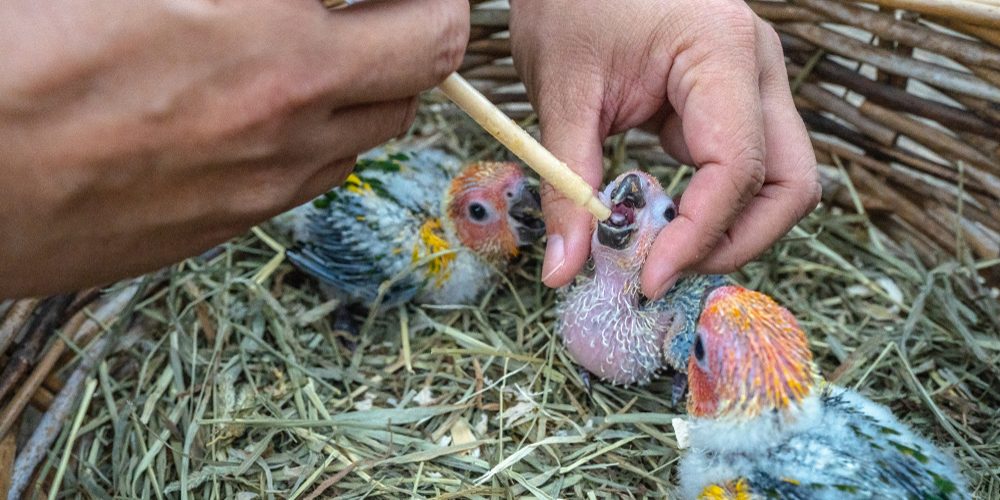
Newcastle disease causes farmers financial losses and is the reason for a quarantine regime in the henhouses. Insufficient disinfection often leads to the fact that the virus spreads among the livestock and settles on the farm for a long time. In order to avoid the unpleasant consequences of this disease, monitor the level of immunity of birds and vaccinate them in a timely manner.



